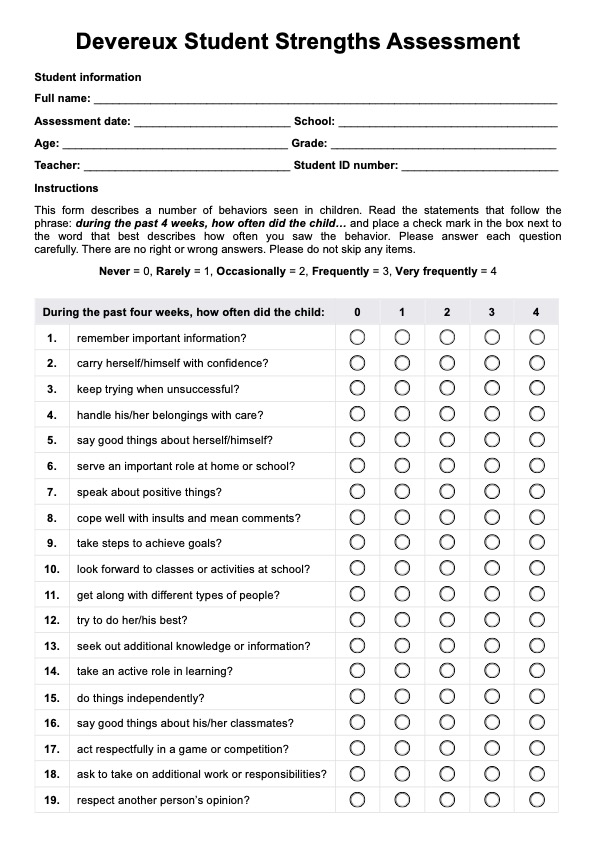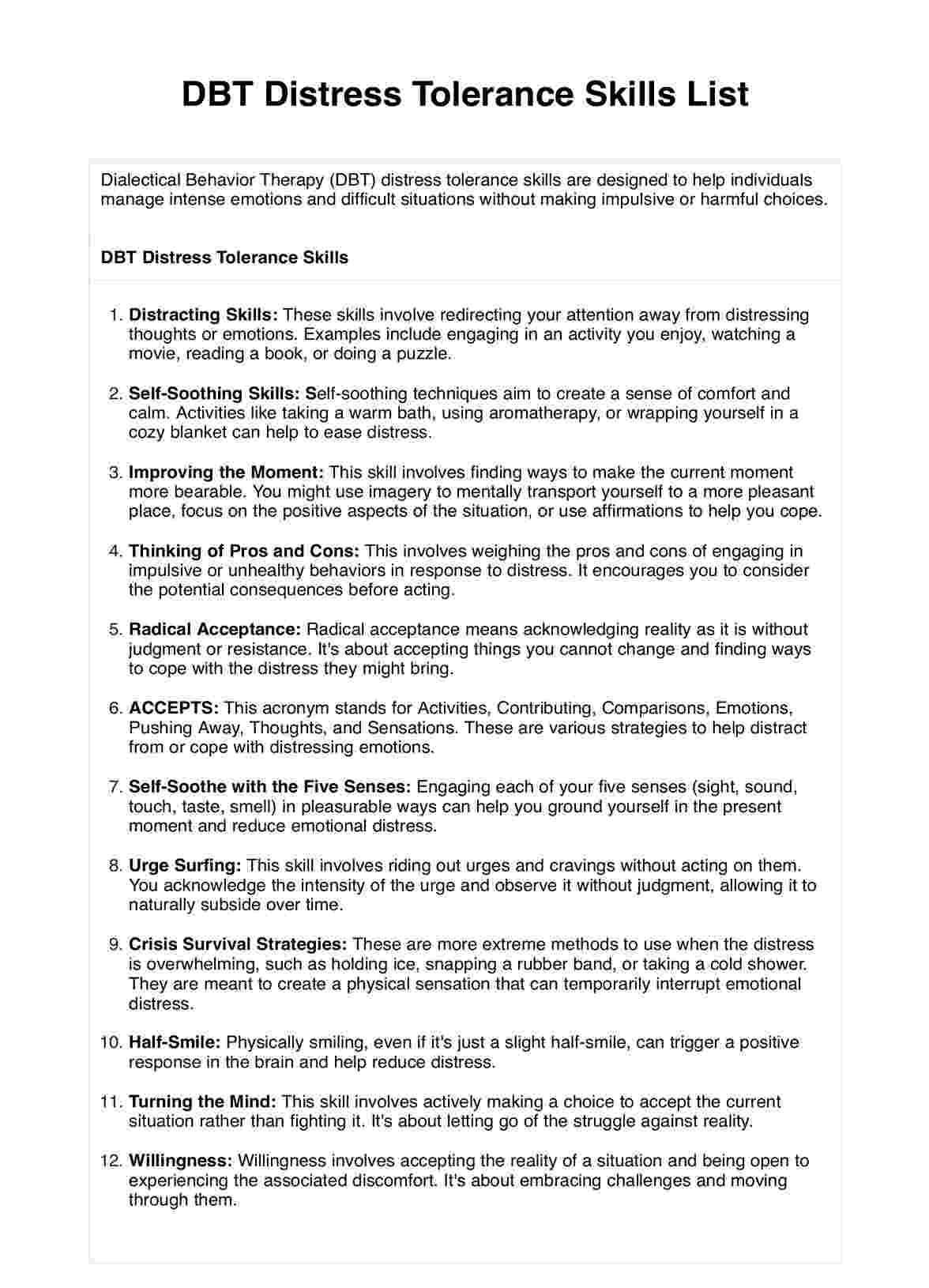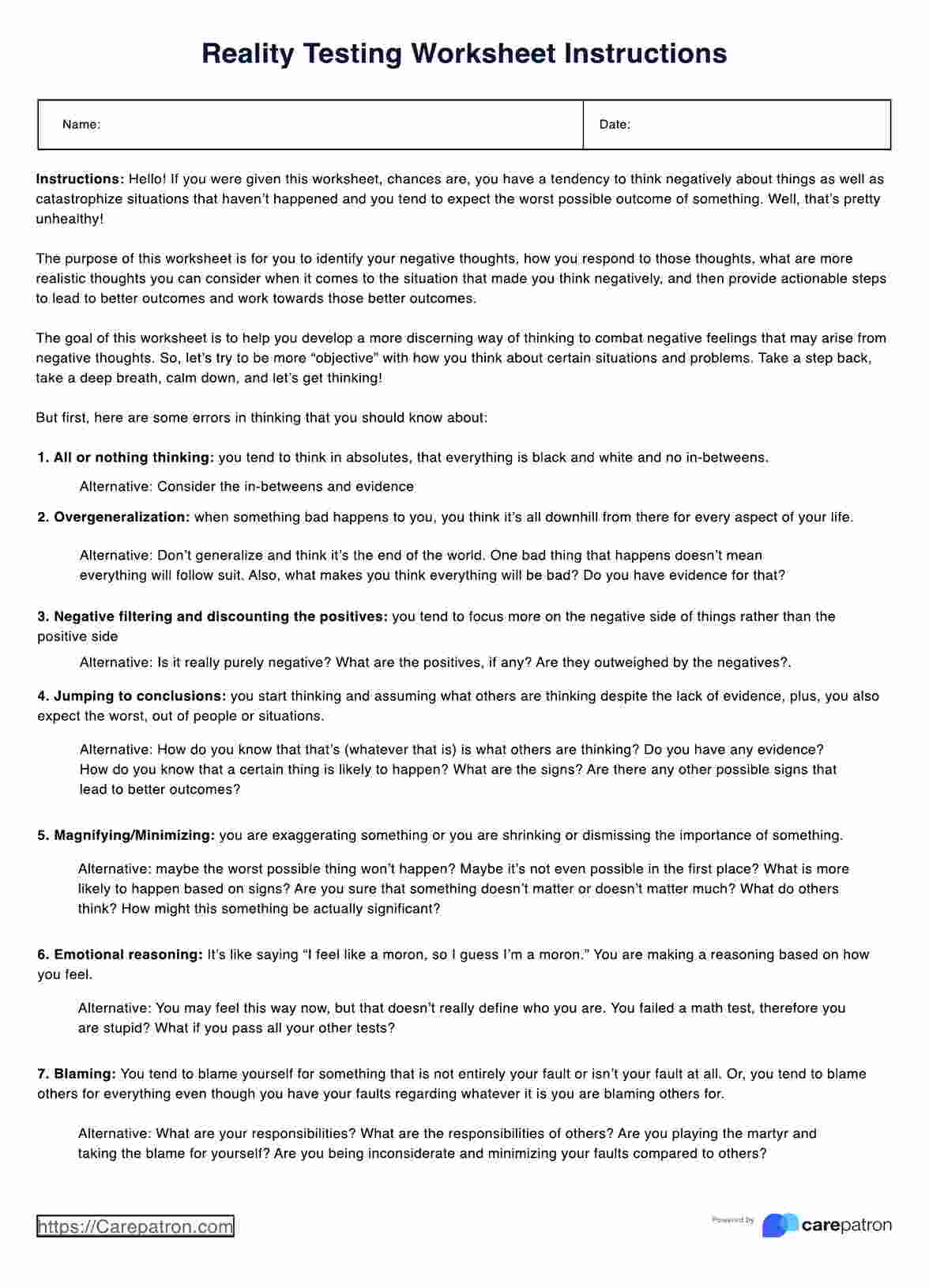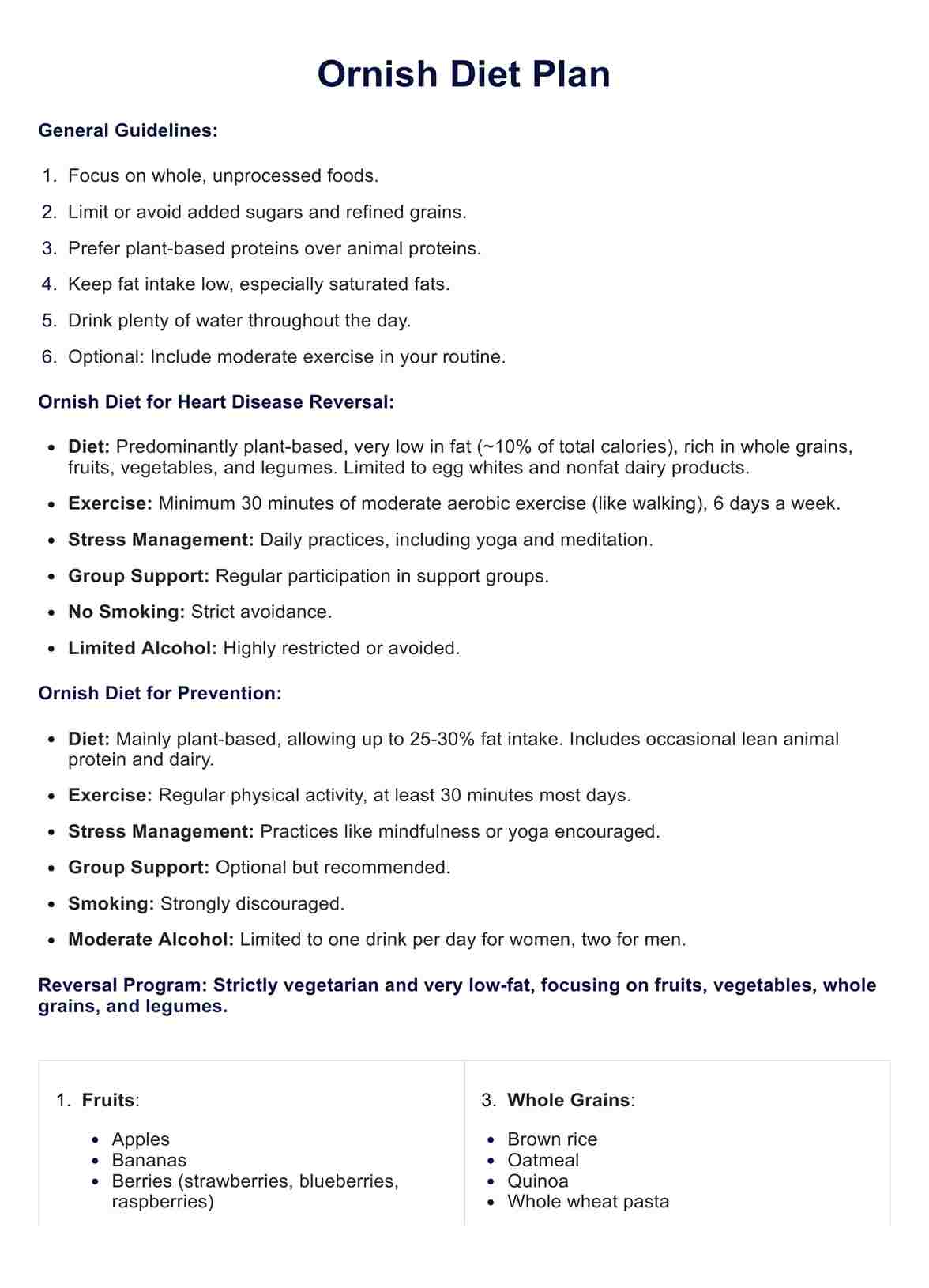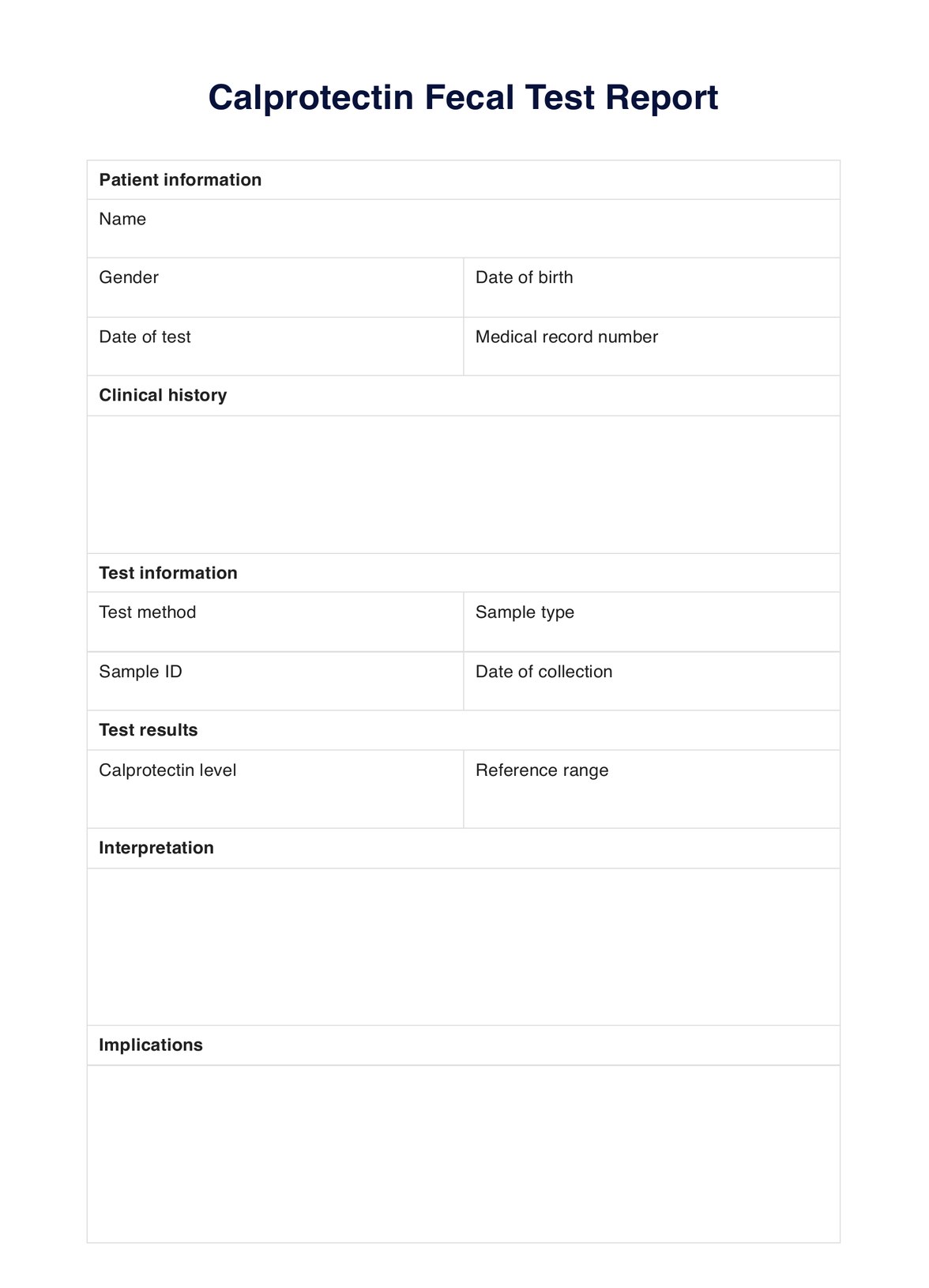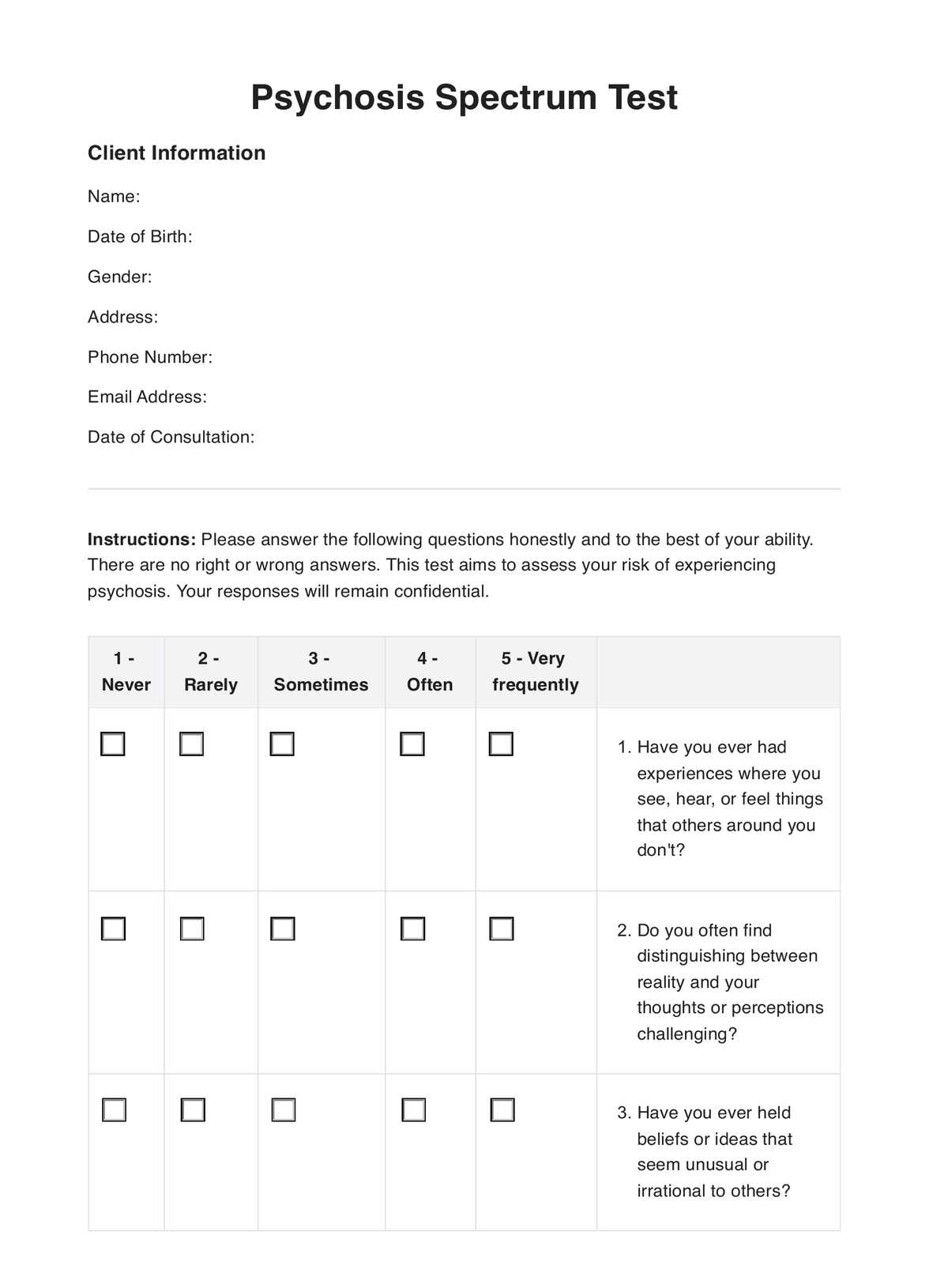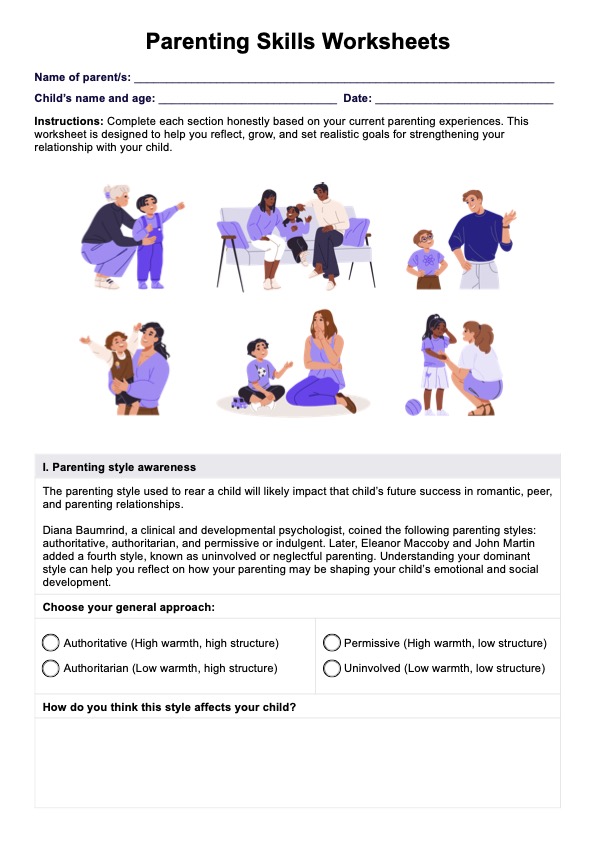Teenage Schizophrenia Test
Learn about schizophrenia in teenagers. Access a free Teenage Schizophrenia Test here.


What causes schizophrenia in a teenager?
The exact causes of schizophrenia in teenagers remain unclear, but it is widely accepted that the disorder results from a combination of genetic, biological, and environmental factors. A family history of schizophrenia significantly increases the likelihood of developing this chronic mental health disorder. Genetic predisposition plays a major role, especially in cases of childhood-onset schizophrenia, where early symptoms can be more severe and complex.
Changes in brain chemistry, particularly imbalances in neurotransmitters like dopamine and glutamate, are also believed to contribute to the development of schizophrenia symptoms. These biological factors can disrupt cognitive and emotional functioning, leading to both positive symptoms like hallucinations and delusions and negative symptoms such as social withdrawal and lack of motivation.
Environmental influences, such as exposure to viruses, toxins, or extreme stress during early childhood or fetal development, can also heighten the risk of developing schizophrenia later in life. Stressful life events, including trauma or abuse, can act as triggers for early-onset schizophrenia in individuals already predisposed to the condition. Recognizing early warning signs and understanding both genetic and environmental factors are critical for effective intervention and treating schizophrenia in young people.
Teenage Schizophrenia Test Template
Teenage Schizophrenia Test Example
How to use the Teenage Schizophrenia Test
This tool is designed to help you assess a client’s experiences with symptoms commonly associated with schizophrenia in teenagers. Follow these steps to guide your client through the process effectively.
Step 1: Download the template
Access the Teenage Schizophrenia Test by clicking "Use template" on the Carepatron app. You can customize it in the editor, fill it out directly, or print it. For a non-editable version, click "Download" to get a PDF.
Step 2: Give your client a copy
Provide your client with a copy of the test to complete. You can offer a printed version for them to fill out manually or email or share a digital version if they prefer to complete it electronically. Encourage them to answer the questions honestly and without pressure to ensure accurate results.
Step 3: Explain the scale
Before starting the test, explain the response scale to your client:
- Never: The symptom is not experienced.
- Sometimes: The symptom is experienced occasionally.
- Often: The symptom is experienced frequently.
- Always: The symptom is experienced almost all the time.
Clarifying the scale helps ensure accurate and meaningful responses.
Step 4: Review responses
After the client completes the test, carefully review their answers. Pay special attention to any questions marked "Often" or "Always," as these responses may indicate areas of concern.
Step 5: Assess the results
Use the scoring guidelines to interpret the responses. If the client selects "Often" or "Always" for:
- 0-4 questions: This may suggest a low likelihood of schizophrenia-related symptoms. No immediate concerns are indicated, but continued monitoring may be warranted.
- 5-9 questions: This may suggest a moderate likelihood of symptoms. Further discussion and exploration of the client’s experiences are advised.
- 10 or more questions: This may suggest a high likelihood of schizophrenia-related symptoms. A comprehensive evaluation by a mental health professional is strongly recommended.
Note that this test is intended as a screening resource to identify possible symptoms associated with schizophrenia. It is NOT a diagnostic tool. Always use your clinical judgment and refer the client to a qualified mental health professional for diagnosis and treatment planning.
Early signs of schizophrenia in teens
Early signs and symptoms of schizophrenia in teens and young adults can manifest as developmental problems such as changes in thinking, behavior, emotions, and even physical functioning.
Disorganized or catatonic behavior related to thinking and speech, along with delusions (false beliefs) and hallucinations (hearing voices or seeing things that aren't there), are common early signs. Behavioral changes may include social withdrawal, loss of interest in activities, changes in sleep patterns or appetite, and poor personal hygiene. Emotional changes can involve the flat affect, anhedonia, alogia, and avolition.
The cognitive symptoms of schizophrenia in teens can be classified into several key areas:
- Attention: Difficulty focusing and staying on task is common. Individuals may struggle with conversations or finishing tasks.
- Memory: Impairments in working memory can lead to issues with following instructions, remembering appointments, and learning.
- Executive functioning: Skills for planning, organizing, and decision-making may be impaired, causing problems in social interactions and task completion.
- Processing speed: Slower processing speed can make it hard to keep up with conversations or react quickly to situations.
- Social cognition: A struggle to understand and respond to other's emotions and intentions can lead to difficulties in social interactions and forming relationships.
Recognizing these early symptoms is critical for early intervention and treating schizophrenia effectively in young adults.
How is schizophrenia diagnosed in a child?
Diagnosing childhood schizophrenia involves a thorough process to rule out other potential causes of symptoms, such as mental health disorders, substance use, medications, or underlying medical conditions. The diagnosis typically includes the following steps (Mayo Clinic, 2016):
Physical exam
A physical examination is conducted to identify or rule out medical issues contributing to the symptoms. This step also helps detect any associated complications.
Tests and screenings
Tests may be ordered to exclude other conditions with similar symptoms. These could include screenings for alcohol or drug use and imaging studies like MRI or CT scans to check for abnormalities in the brain.
Psychiatric evaluation
A comprehensive psychiatric assessment examines the child's appearance, demeanor, thoughts, feelings, and behavior patterns. This includes evaluating:
- The child's ability to think and function at an age-appropriate level.
- Any signs of self-harm, thoughts of harming others, mood disturbances, anxiety, or psychotic symptoms.
- Personal and family mental health history.
Diagnostic criteria
Mental health professionals use the Diagnostic and Statistical Manual of Mental Disorders (DSM-5) criteria to determine if the child meets the standards for a schizophrenia diagnosis.
Treatment options
There is no cure for psychotic episodes of schizophrenia, but there are effective treatments available to manage the symptoms and improve quality of life. Treatment for psychotic illness typically involves a combination of medication and therapy.
Medication
Medication, or psychopharmacology, is a crucial component in the treatment of schizophrenia in children and adolescents. The most commonly prescribed medications are neuroleptics, also known as antipsychotic drugs. While these medications cannot cure schizophrenia, they are highly effective in managing its symptoms. Neuroleptics are primarily used to address the pervasive, intrusive thoughts associated with the condition, reduce the severity of hallucinations and delusions, and improve overall functioning. To achieve the best outcomes, these medications must be taken as prescribed, with dosage or type adjustments made over time to maintain effectiveness.
Psychotherapy
Psychotherapy, or “talk therapy,” is a fundamental aspect of psychiatric treatment for children and adolescents with schizophrenia. Through sessions with a psychiatrist or psychologist, young patients can better understand their symptoms and develop strategies to manage them effectively. Therapy also provides a safe space for expressing emotions like anxiety, fear, sadness, and anger related to living with a chronic psychiatric condition. Additionally, it helps children build coping mechanisms for daily challenges, address the stigma of mental illness, and explain their diagnosis to family members and friends.
Specialized education and programs
Children and adolescents with schizophrenia can benefit significantly from specialized programs tailored to their unique needs, often available in schools, medical centers, or community settings. These programs may include smaller, customized classroom environments led by educators with expertise in teaching students with psychiatric disorders.
Social skills training is also crucial, helping young individuals develop healthy interpersonal interactions, such as maintaining appropriate eye contact and engaging in relevant conversations. Additionally, it may focus on personal hygiene checklists and managing everyday tasks like meal preparation or basic financial skills (Boston Children's Hospital, 2024).
References
Boston Children's Hospital. (2024). Childhood schizophrenia. https://www.childrenshospital.org/conditions/schizophrenia#diagnosis--treatments
Mayo Clinic. (2016). Childhood schizophrenia - diagnosis and treatment - Mayo Clinic. https://www.mayoclinic.org/diseases-conditions/childhood-schizophrenia/diagnosis-treatment/drc-20354489
Commonly asked questions
Yes, teenagers with schizophrenia frequently experience co-occurring mental health conditions, such as anxiety disorders, depression, or bipolar disorder. These additional conditions, combined with the challenges of recognizing schizophrenia in a young person, can complicate diagnosis and treatment. A comprehensive mental health evaluation is essential to differentiate between these conditions and develop an effective treatment plan that may include psychosocial interventions and family therapy.
Teenage schizophrenia tests are used when a teenager exhibits symptoms that may indicate schizophrenia, such as delusions, auditory or visual hallucinations, or significant social withdrawal. Because schizophrenia is a severe mental disorder that affects behavior, thought patterns, and emotions, early testing is crucial for diagnosing schizophrenia and beginning timely treatment.
Teenage schizophrenia tests are designed to assess the presence and severity of symptoms such as hallucinations, delusions, or behavioral changes that may signal the disorder. These tests help clinicians make an accurate diagnosis and guide the development of a tailored treatment plan. Treatment often includes antipsychotic medications, family therapy, and psychosocial interventions to address the child's behavior and symptoms and improve their ability to function in daily life.


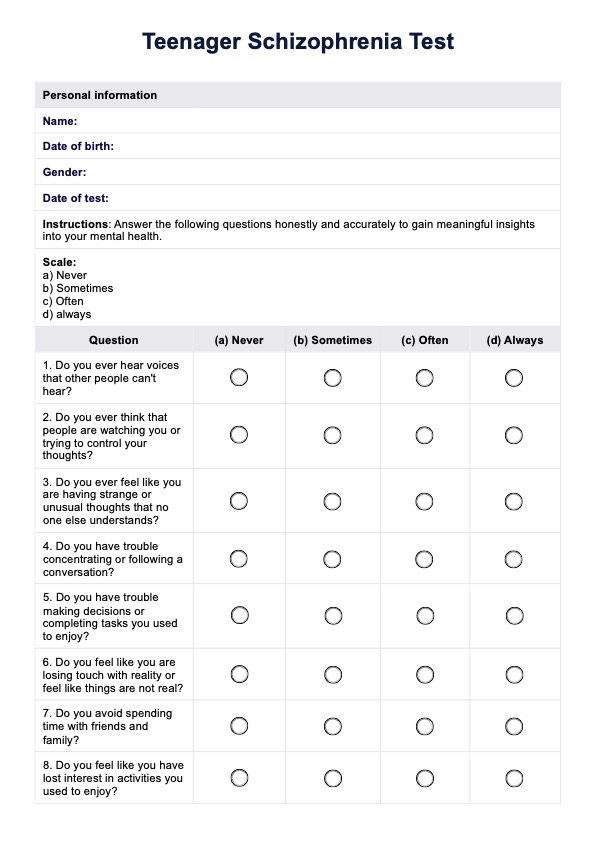


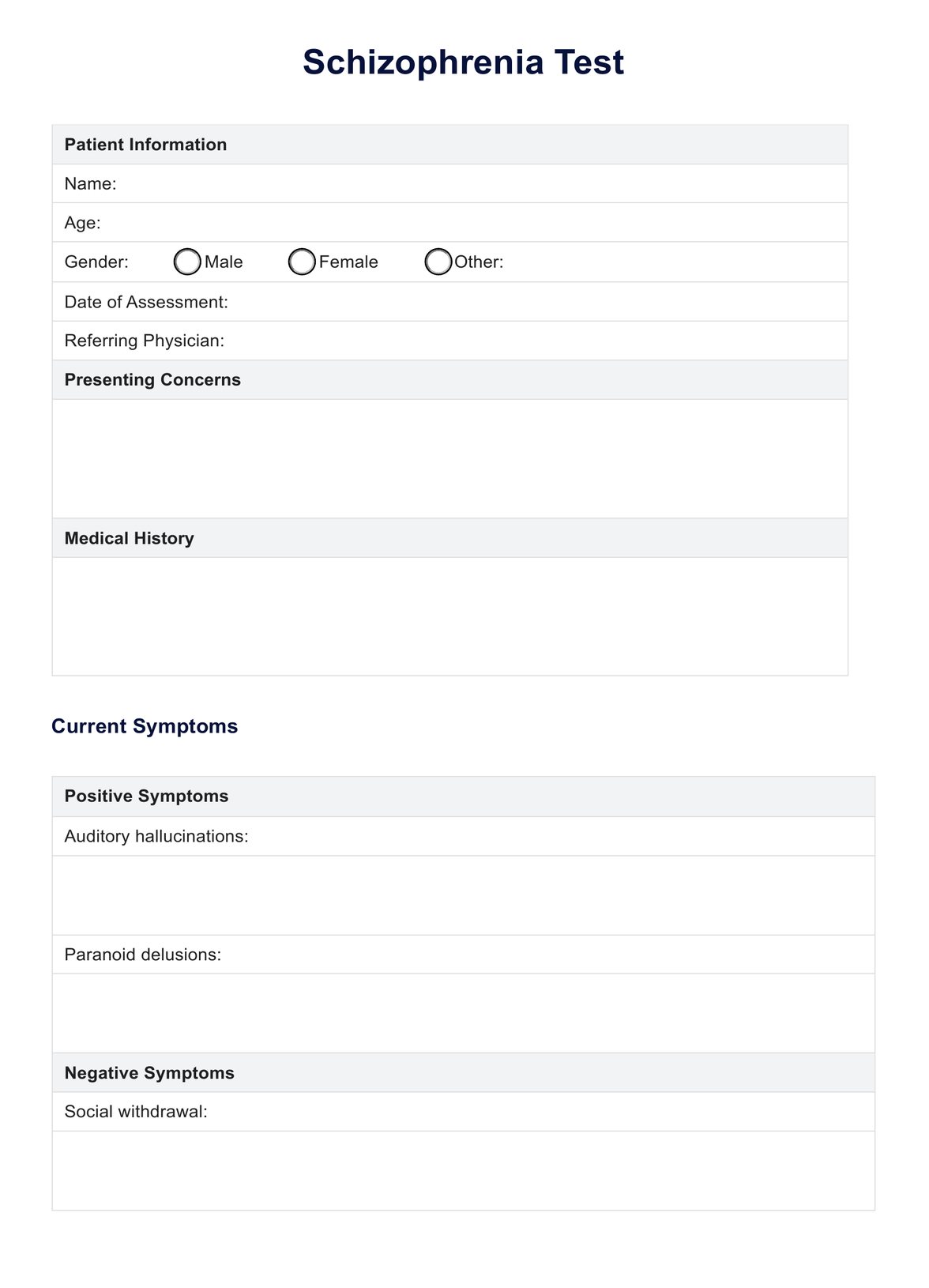
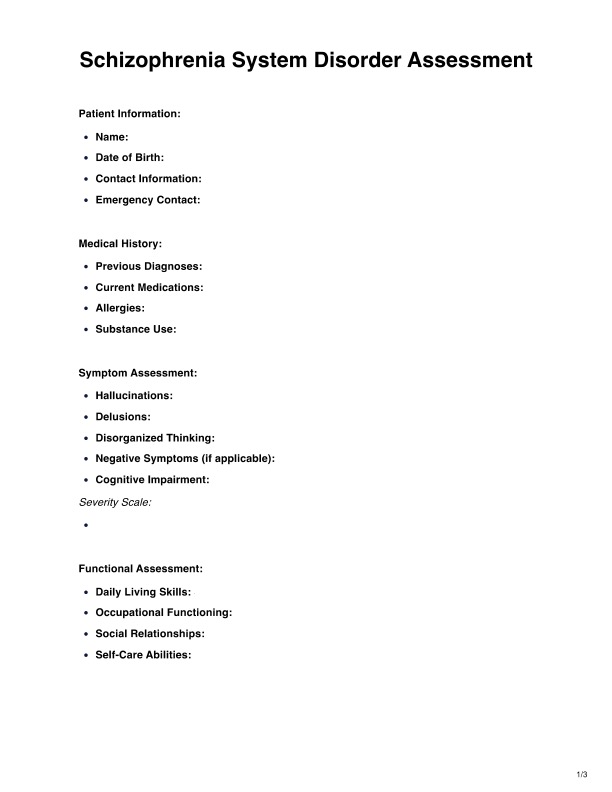

















-template.jpg)



























